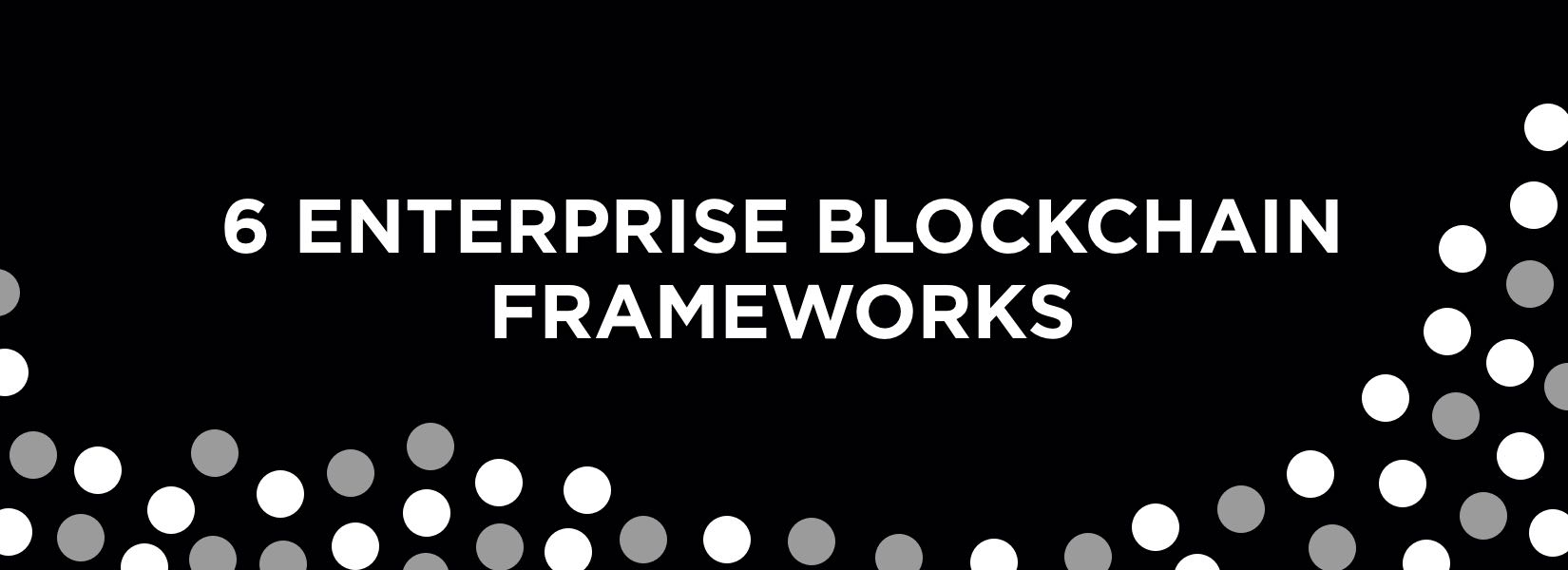6 Blockchain frameworks to build Enterprise Blockchain & how to choose them?
— Written by

Let us help you list some of the open frameworks for blockchain (both public and private blockchain frameworks), that can help you develop your Enterprise Blockchain solution faster and better. Learn more.
We’ve written quite a bit about how blockchain is impacting industries and why you should literally take a call on blockchain right now. Besides this, our Chief Architect has also written quite a bit on the Hyperledger framework, which is a private blockchain framework from Linux Foundation.
Why can we (Skcript) talk about blockchain frameworks?
TLDR; We’ve worked on four of these six frameworks in production. So, experience speaks.
As of today, we’ve done two large implementations of private blockchains for enterprise companies across the world. The most important decision that we would have to make every time we start off a blockchain project is to decide on the framework that we can use to get things out faster or to build something on our own.
How to choose a Enterprise Blockchain Framework?
Not everything that is open and available is for you. Choosing a framework is very tricky when it comes to enterprise-grade applications, considering the impact it could have on large businesses.
Blockchain is a fairly new technology. So are the frameworks and community around them. Choosing an Enterprise Blockchain framework is even more tricky since you will have to be careful about a variety of factors before, during and after implementation.
From our experience these are some of the factors that you should look out for when choosing your Enterprise Blockchain framework:
- License; what is the framework licensed under? Is it completely free to use? or does it comes with a package attached to it?
- Community; is the community large enough around the framework? How vibrant is the community?
- Support model; is the framework receiving any support from a large corporation? this will help predict the longevity of a framework.
- Activity; how often is the framework receiving patches and feature updates?
- Roadmap; is the framework having a roadmap that you can predict in the future?
- Ease of use; the last thing you want to do is to get stuck in a complex mesh of new technology that is yet to see large-scale adoption.
The big six for Enterprise Blockchain
Today, let us help you list down the six major frameworks that you can use for your Enterprise Blockchain implementation. These frameworks are valued based on the factors we listed above. Here goes:
- Hyperledger; Supported by Linux Foundation and IBM.
- Ethereum; a private blockchain framework from Ethereum.
- Multichain; an open platform for building blockchains.
- Eris Industries; a low-cost blockchain implementation framework.
- R3 Corda; Corda is a blockchain framework designed specifically for BFSI industry.
- Openblockchain; an open blockchain fabric code framework.
What do I do next?
The natural next step would be to try out these frameworks for your implementation or use-case. But, if you are an open to letting an expert help you with this, write to us here. We run Blockchain Business Workshop; a two-day event that will help you make a realistic decision on implementing blockchain for your enterprise.
Up next
How not to be distracted in 2018! Skcript
/svr/6-open-source-enterprise-blockchain-frameworks-to-build-your-first-blockchain-today/
/svrmedia/heroes/f/enterprise_blockchain_frameworks.jpg
Skcript
/svr/6-open-source-enterprise-blockchain-frameworks-to-build-your-first-blockchain-today/
/svrmedia/heroes/f/enterprise_blockchain_frameworks.jpg